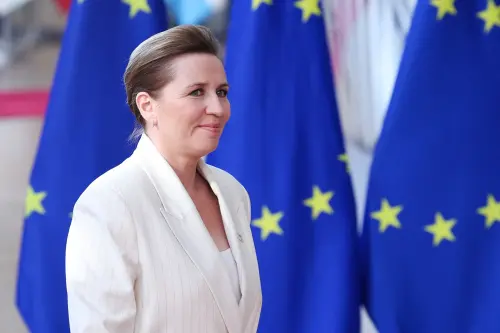Denmark's prime minister will visit Greenland on Wednesday for discussions with the territory's incoming government, coinciding with U.S. President Donald Trump's recurring interest in controlling the Arctic island.
Mette Frederiksen begins her three-day trip less than a week after U.S. Vice President JD Vance's visit, which was met with a cool reception from authorities in Denmark and Greenland.
Greenland's incoming Prime Minister, who secured victory in last month's general election and is forming a coalition government, welcomed Frederiksen's visit, stating that Denmark remains "Greenland's closest partner."
Relations between Greenland and Denmark have been strained due to recent revelations of historical mistreatment of Greenlanders during colonial rule. The growing international focus on competition for influence in the Arctic has prompted Denmark to expedite efforts to strengthen ties with Greenland.
Nielsen expressed that Greenland would reinforce its relationship with Denmark until it could achieve its ultimate goal of becoming a sovereign nation. He emphasized the desire for a respectful relationship with the United States.
"Discussing annexation and the takeover of Greenland without recognizing its sovereignty is disrespectful. Let’s begin by treating each other with respect and build a strong partnership," he said.
During his visit to a U.S. military base in northern Greenland, Vance criticized Denmark for not adequately securing the island and suggested that the United States could provide better protection for this strategically located territory.
Frederiksen, who has emphasized that it is up to the people of Greenland to determine their future, deemed Vance's critique of Denmark "not fair."
Opinion polls indicate that the majority of Greenland's 57,000 residents favor maintaining ties with Denmark, though many caution against pursuing independence too hastily, fearing that it could lead to adverse conditions and greater exposure to U.S. interests.
